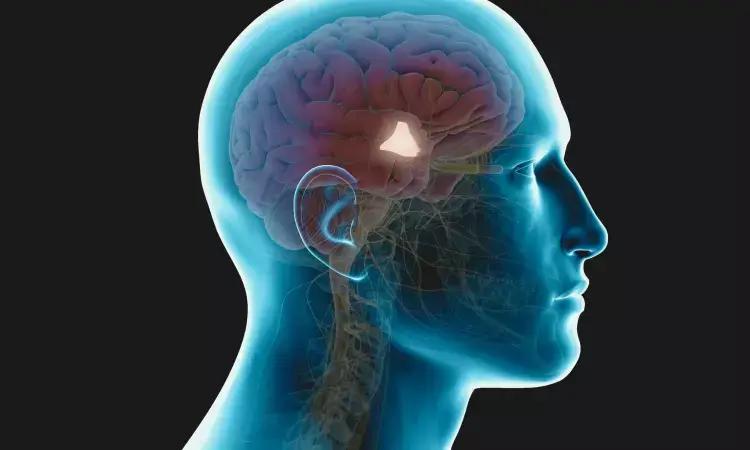- Home
- Medical news & Guidelines
- Anesthesiology
- Cardiology and CTVS
- Critical Care
- Dentistry
- Dermatology
- Diabetes and Endocrinology
- ENT
- Gastroenterology
- Medicine
- Nephrology
- Neurology
- Obstretics-Gynaecology
- Oncology
- Ophthalmology
- Orthopaedics
- Pediatrics-Neonatology
- Psychiatry
- Pulmonology
- Radiology
- Surgery
- Urology
- Laboratory Medicine
- Diet
- Nursing
- Paramedical
- Physiotherapy
- Health news
- Fact Check
- Bone Health Fact Check
- Brain Health Fact Check
- Cancer Related Fact Check
- Child Care Fact Check
- Dental and oral health fact check
- Diabetes and metabolic health fact check
- Diet and Nutrition Fact Check
- Eye and ENT Care Fact Check
- Fitness fact check
- Gut health fact check
- Heart health fact check
- Kidney health fact check
- Medical education fact check
- Men's health fact check
- Respiratory fact check
- Skin and hair care fact check
- Vaccine and Immunization fact check
- Women's health fact check
- AYUSH
- State News
- Andaman and Nicobar Islands
- Andhra Pradesh
- Arunachal Pradesh
- Assam
- Bihar
- Chandigarh
- Chattisgarh
- Dadra and Nagar Haveli
- Daman and Diu
- Delhi
- Goa
- Gujarat
- Haryana
- Himachal Pradesh
- Jammu & Kashmir
- Jharkhand
- Karnataka
- Kerala
- Ladakh
- Lakshadweep
- Madhya Pradesh
- Maharashtra
- Manipur
- Meghalaya
- Mizoram
- Nagaland
- Odisha
- Puducherry
- Punjab
- Rajasthan
- Sikkim
- Tamil Nadu
- Telangana
- Tripura
- Uttar Pradesh
- Uttrakhand
- West Bengal
- Medical Education
- Industry
Bariatric surgery may reduce hypothalamic inflammation and modulate weight loss response: Study

Spain: Recent research has shed light on promising findings regarding the impact of bariatric surgery on hypothalamic inflammation and its correlation with short-term weight loss outcomes in adults, irrespective of their type 2 diabetes (T2D) status. The hypothalamus, a crucial region in the brain responsible for regulating hunger and metabolism, has been increasingly recognized for its role in obesity and related metabolic disorders.
The findings, published in Diabetes Care, suggest hypothalamic inflammation (HI) improvement after bariatric surgery (BS) and may support a role for HI in modulating the weight response to these interventions.
Preclinical studies have linked hypothalamic inflammation to the pathophysiology of obesity and type 2 diabetes. Yet, further research is needed to clarify its significance in disease development and assess its potential for reversal. Considering this, Amanda Jiménez, Endocrinology and Nutrition Department, Hospital Clínic, Barcelona, Spain, and colleagues sought to evaluate the effect of bariatric surgery on radiological HI biomarkers and the association between the severity of such radiological alterations and post-BS WL trajectories. They also explored the utility of cerebrospinal fluid large extracellular vesicles (CSF-lEVs) enriched for microglial and astrocyte markers in studying HI.
The researchers included 72 individuals with obesity (20 with and 52 without type 2 diabetes) and 24 control individuals. Participants underwent lumbar puncture and underwent a 3-T MRI at baseline and again at 1-year post-bariatric surgery. The research team assessed hypothalamic mean diffusivity (MD) (higher values indicate lesser microstructural integrity) and the volume of the whole and main hypothalamic subregions. Flow cytometry determined CSF-lEVs enriched for astrocyte and glial markers.
The study led to the following findings:
- The obesity and type 2 diabetes groups showed a larger volume and higher MD in the hypothalamic tubular inferior region, the area encompassing the arcuate nucleus, compared with the control group. These radiological alterations were positively associated with baseline anthropometric and metabolic measures and improved post-BS.
- A larger baseline tubular inferior hypothalamic volume was independently related to lesser WL 1 and 2 years after BS.
- CSF-lEVs did not differ among groups and were unrelated to WL trajectories.
"This study proposes that individuals with obesity and type 2 diabetes exhibit hypothalamic inflammation, which could influence the weight-loss outcomes observed after undergoing bariatric surgery," the researchers wrote.
In conclusion, the study underscores the dual benefits of bariatric surgery in reducing hypothalamic inflammation and predicting short-term weight loss outcomes. These findings advance understanding of the neurobiological mechanisms underlying obesity and also offer potential avenues for personalized treatment strategies aimed at improving metabolic health in adults with or without type 2 diabetes.
Reference:
Adriana Pané, Laura Videla, Àngels Calvet, Judith Viaplana, Lídia Vaqué-Alcázar, Ainitze Ibarzabal, Mateus Rozalem-Aranha, Jordi Pegueroles, Violeta Moize, Josep Vidal, Emilio Ortega, Isabel Barroeta, Valle Camacho, Gemma Chiva-Blanch, Juan Fortea, Amanda Jiménez; Hypothalamic Inflammation Improves Through Bariatric Surgery, and Hypothalamic Volume Predicts Short-Term Weight Loss Response in Adults With or Without Type 2 Diabetes. Diabetes Care 20 June 2024; 47 (7): 1162–1170. https://doi.org/10.2337/dc23-2213
Dr Kamal Kant Kohli-MBBS, DTCD- a chest specialist with more than 30 years of practice and a flair for writing clinical articles, Dr Kamal Kant Kohli joined Medical Dialogues as a Chief Editor of Medical News. Besides writing articles, as an editor, he proofreads and verifies all the medical content published on Medical Dialogues including those coming from journals, studies,medical conferences,guidelines etc. Email: drkohli@medicaldialogues.in. Contact no. 011-43720751


